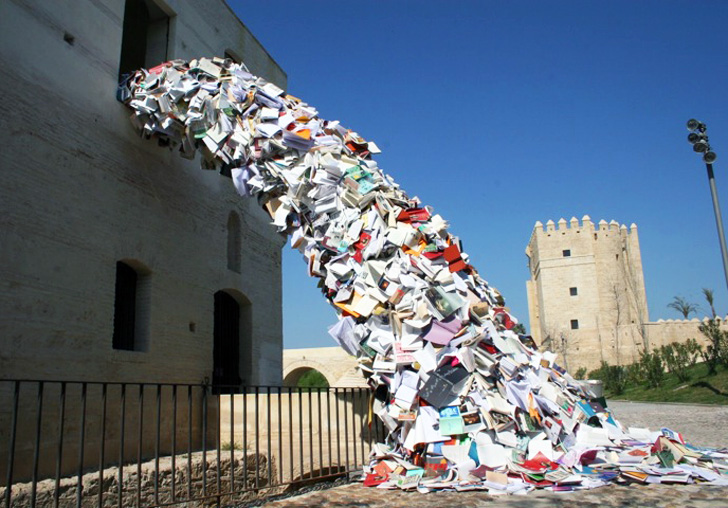A Magyar Irodalom Politikai Gazdaságtana Lendület-Kutatócsoport 2022. június 13–14-én nemzetközi, angol nyelvű konferenciát rendez Budapesten irodalom, kapitalizmus és nacionalizmus viszonyáról. A „nemzeti irodalom” egyike volt a hosszú 19. század legnagyobb hatású eszméinek. Sikerét ugyanakkor olyan gazdasági-politikai tendenciák is előmozdították, amelyek kevésbé kapcsolódtak a nemzeti hagyományokhoz, inkább a modern piacok térnyerésével álltak összefüggésben. S míg az irodalomtörténet-írás vagy az irodalomkritika az egyes irodalmak nemzeti sajátosságait hangsúlyozta, a forgalmazás kapitalista logikája számára a kulturális javaknak mint szabványosított piaci cseretárgyaknak aligha lehetett nemzeti karaktere. E piacok hatékony működtetéséhez viszont a közösség összetartozásának tudatára is szükség volt, amelynek legfontosabb kulturális megjelenítője viszont a „nemzeti irodalom” volt.
A rendezvényre nem csupán irodalomtörténeti, hanem eszme- , gazdaság- vagy politikatörténeti szempontú előadásokat is várunk. Az absztraktok beküldésének új határideje 2022. január 31. Témajavaslatok és további információk az alábbi kiírásban találhatók.
A conference in Budapest, 13–14 June 2022,
with keynote speaker
Prof. Galin Tihanov (George Steiner Professor of Comparative Literature at Queen Mary University of London)
The concept of “national literature” was one of the best-selling ideas in the long 19th century. The conviction that the forms and themes of literature were best determined by (inherited or resurrected) national traditions and that their main task was to articulate the nation’s character and demonstrate its spiritual merits enjoyed immense transnational virulence. The success of literary nationalism, however, was propelled by socio-economic tendencies bound up less with national traditions than modern market culture. National literatures were forged and consolidated as praxis and canon amidst (and by the means of) the commercialization and industrialization of literary production, distribution and consumption.
The joint march of nationalism and capitalism framed the nineteenth-century reconfiguration of the literary field in manifold ways. Literature became a privileged site for the self-assertion of national movements which in turn demanded considerable economic resources to finance the infrastructure and institutions of national culture. As much the efficient distribution of the nation’s literary output relied on commercial channels, literary commerce (as well as the marketing of nationalism on the whole) grew into a non-negligible economic factor. Conversely, the development of national markets, and not only cultural ones, was feeding on a collective consciousness raised and nurtured by national literature. Notwithstanding their interdependences, the respective tendencies of literary nation-building and capitalist transformation remained conflictual throughout the 19th century. In addition to the negotiations of spiritual and utilitarian values, the national framing of literature was also confronted with the felt cosmopolitanism of capitalism, i.e. its reluctance to observe political, geographical, and cultural boundaries. Whereas literary historiography and criticism asserted the national idiosyncrasy of literary ideas, forms, and genres, in capitalist economies these cultural goods and assets could only be recognized as standardized items offered in market exchange, transcending their national belonging.
We invite papers that tackle this entanglement of literature, nationalism, and capitalism from aesthetic, political, and economic aspects, as represented in nineteenth-century criticism, cultural praxis, or poetry, fiction and drama. We are equally open to national case studies and to larger-scale comparative explorations.
Topics may include (but are not restricted to):
- national literatures as sites of symbolic and material capital formation
- literature as a national asset and/or common good
- national literature as a commercial brand, literary nationalism as brand loyalty
- the international competition of literary nationalisms and their “literary industries”
- nations as “imagined communities” and the economies of imagined value
- the political economy of literature as unproductive/productive labor
- systems of national literature and the rise of national monetary regimes
- the celebrification of the national author as a literary entrepreneur
- national literary prizes and the international “economies of prestige”
- the economic precarity of the national author: market, patronage, relief societies
- selling heritage: the commercialization of literary cults and commemorations
- the international markets of national self-representation (e.g. folk poetry, the historical novel, literary history)
- trademarking national literature: the (inter)nationalization of copyright
- the national book industry and its patriotic-cum-capitalist publishing ventures
- state interventions in creating and protecting national literary markets
- speculation in the literary field: the manias and panics of literary nationalism
The conference is organized by ‘The Political Economy of Hungarian Literature’ Lendület Research Group, under the sponsorship of the Hungarian Academy of Sciences. Given the unpredictability of future pandemic policies and the enduring uncertainties of foreign travel, the event may take place in a hybrid form or entirely online.
We have an offer from Peter Lang to publish a volume in their series Literature – Culture – Economy from the papers presented at the conference.
To submit: send a 250-word abstract with brief biographical details to
Sándor Hites (Hites.Sandor@abtk.hu), Research Center for the Humanities, Institute of Literary Studies, Budapest, Hungary
Levente T. Szabó (szabolevente@yahoo.com), Babeș-Bolyai University, Cluj/Kolozsvár, Romania
Extended deadline for submissions: 31 January 2022
Successful applicants will be notified by 15 February 2022
The conference charges no registration fee. Partial reimbursements of travel and/or stay may be offered.

